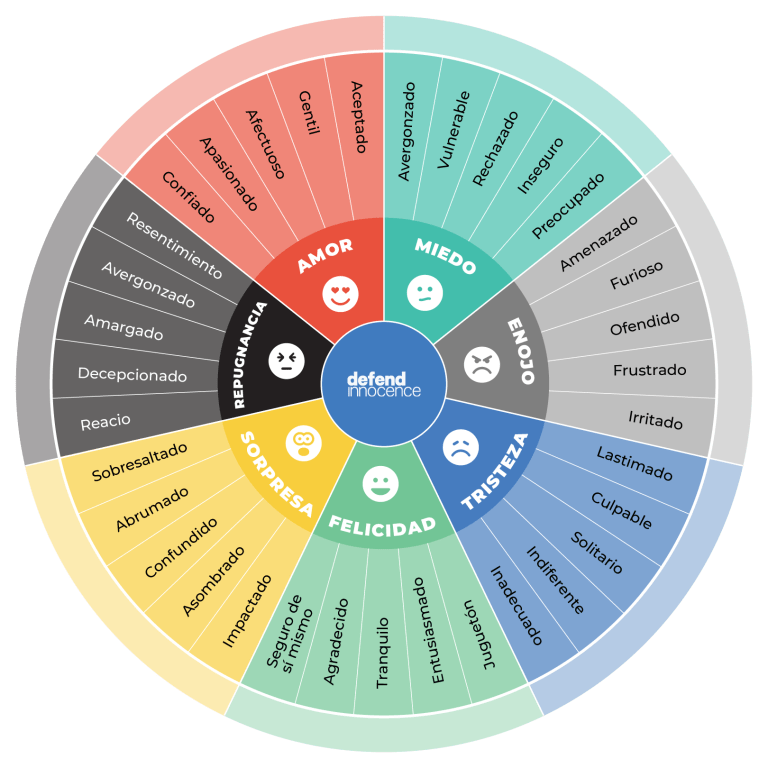Embarking on an exploration of The More Complex Your Emotions Are Everfi, we delve into the intricate tapestry of human emotions, unraveling their varying degrees of complexity and their profound impact on our lives.
From the nuanced shades of simple feelings to the intricate layers of complex emotions, this discourse will illuminate the factors that shape emotional complexity, its relationship with emotional regulation, and the crucial role of emotional intelligence in navigating these intricate emotional landscapes.
The Complexity of Emotions

Emotions encompass a vast spectrum of human experiences, ranging from simple and straightforward to highly complex and multifaceted. The complexity of an emotion refers to the number and intensity of its component parts, as well as the degree to which it is influenced by cognitive factors.
Simple emotions, such as happiness or sadness, are typically characterized by a single, dominant feeling state. Complex emotions, on the other hand, involve a blend of multiple emotions that can be both positive and negative. For example, the emotion of love encompasses elements of joy, attachment, and protectiveness, while the emotion of guilt involves feelings of remorse, shame, and responsibility.
The complexity of emotions is influenced by several factors, including:
- Personal experiences and memories
- Cognitive processes, such as appraisal and interpretation
- Social and cultural context
- Biological and physiological factors
Emotional Regulation and Complexity
Emotional regulation refers to the ability to manage and control one’s emotions. Complex emotions can pose challenges for regulation due to their multifaceted nature and the potential for conflicting emotional experiences. For example, the emotion of love can lead to both intense feelings of joy and vulnerability, which can be difficult to reconcile.
Strategies for managing complex emotions effectively include:
- Recognizing and acknowledging the complexity of the emotion
- Breaking down the emotion into its component parts
- Identifying and addressing the underlying thoughts and beliefs that contribute to the emotion
- Using coping mechanisms, such as relaxation techniques or talking to a trusted friend
Emotional Intelligence and Complexity
Emotional intelligence is the ability to understand, manage, and use emotions effectively. It plays a crucial role in navigating complex emotions by enabling individuals to:
- Identify and differentiate between different emotions
- Understand the causes and consequences of emotions
- Regulate emotions in a healthy and adaptive manner
- Use emotions to guide behavior and decision-making
Tips for developing emotional intelligence and fostering healthy emotional responses include:
- Practice mindfulness and self-awareness
- Engage in emotional journaling
- Seek feedback from trusted sources
- Learn from past experiences
Emotional Complexity in Relationships
Emotional complexity can have a significant impact on interpersonal relationships. Complex emotions can lead to misunderstandings, conflicts, and difficulties in communicating effectively. For example, the emotion of jealousy can involve feelings of insecurity, anger, and possessiveness, which can be challenging to express and manage in a relationship.
Strategies for navigating emotional complexity in relationships effectively include:
- Communicating openly and honestly about emotions
- Being empathetic and understanding of the other person’s perspective
- Setting clear boundaries and expectations
- Seeking support from a therapist or counselor if needed
Emotional Complexity and Well-being, The more complex your emotions are everfi
Emotional complexity has a significant connection to overall well-being. Complex emotions can influence mental and physical health in both positive and negative ways. For example, the emotion of gratitude can promote feelings of happiness and contentment, while the emotion of anger can lead to stress and anxiety.
Tips for fostering emotional well-being in the face of emotional complexity include:
- Developing healthy coping mechanisms
- Seeking support from trusted friends and family
- Engaging in activities that promote emotional regulation, such as exercise or meditation
- Practicing self-compassion and acceptance
Top FAQs: The More Complex Your Emotions Are Everfi
What are the key factors that contribute to emotional complexity?
Emotional complexity is influenced by factors such as life experiences, cultural background, cognitive abilities, and individual personality traits.
How can emotional complexity impact interpersonal relationships?
Complex emotions can affect communication, conflict resolution, and intimacy within relationships, both positively and negatively.
What are some strategies for managing complex emotions effectively?
Effective strategies include mindfulness, emotional regulation techniques, and seeking support from trusted individuals or professionals.

